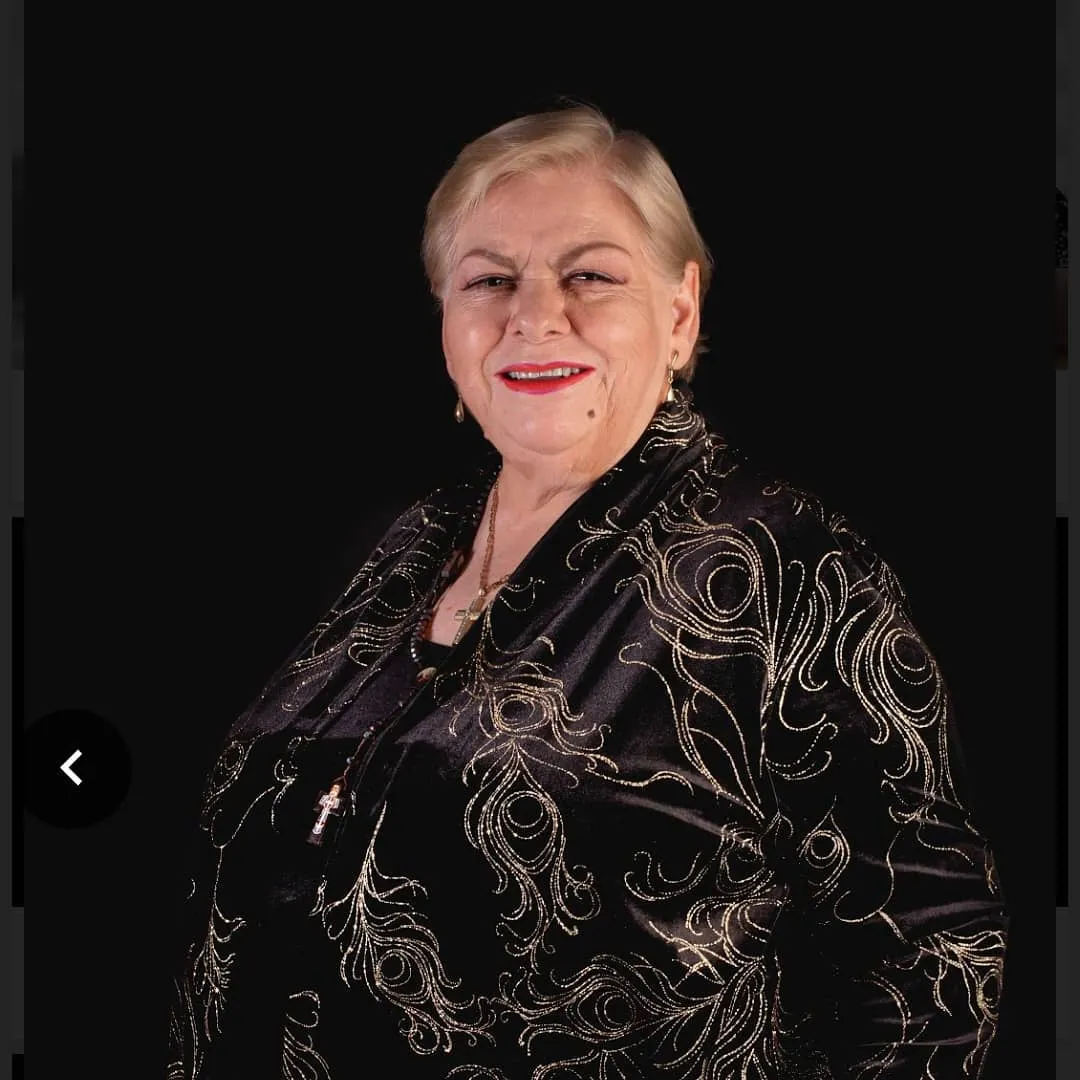The story of Paquita la del Barrio is filled with cheating, betrayals, and loneliness. Her legacy rises from the shadows, and here we trace her journey.
La Reina del Pueblo
Francisca Viveros Barradas, better known as Paquita la del Barrio, was born on April 2, 1947 in Alto Lucero de Veracruz, Mexico. Her life is marked by the presence of “two-legged rats” everywhere, and it is precisely these useless individuals who shaped her into a strong-willed woman with a deep voice.

Paquita, también conocida como La Reina del Pueblo, ha ganado reconocimiento por su talento, pero su camino hacia esa fama ha estado lleno de engaños y dificultades de todo tipo. A continuación, exploraremos en detalle estos aspectos.
De origen humilde
“Surrounded by mountains. Amidst white clouds. A pathway to heaven. There is a small town that steals my soul,” sings the song “Alto Lucero.” This track, featured in the album “What a Short Mom,” beautifully describes Paquita’s hometown, where she grew up along with her 8 siblings.

Fue un período de revolución y fue la tía Lucía quien cuidó de la niña en medio de una gran pobreza. La niña terminó la escuela primaria a los 15 años, aunque no sin experimentar una decepción muy dolorosa.
Primer conflicto con los hombres
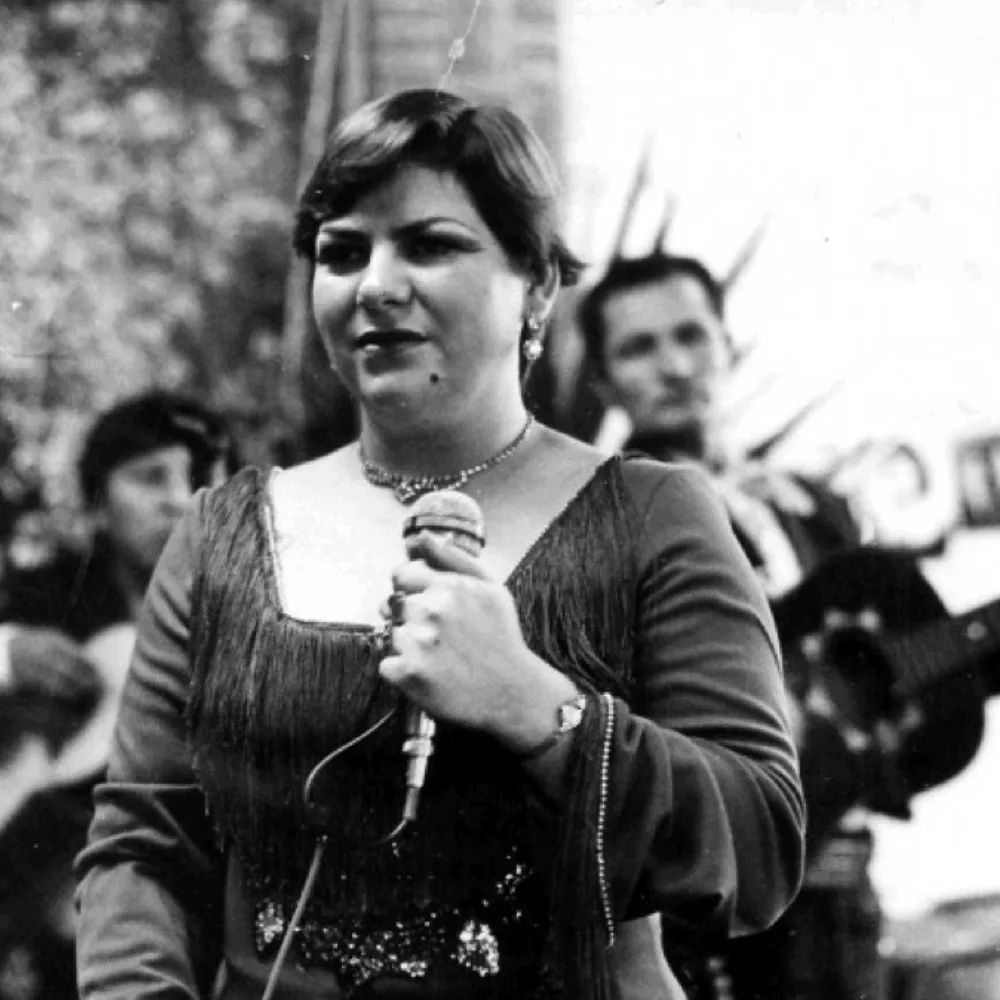
Mónica Garza inquired with the singer about whether she missed her father, and the response is just as forceful as her prose: “since I don’t know what that entails, I believe the answer is no.”
Su primera pareja
Paquita told Martha Susana, “I was 15 years old when I fell in love with that man. It turned out he was married, but still, I lived with him for 7 years, suffering a lot because… making mistakes is not so easy. I believe one should think very carefully or consider who they get involved with.”
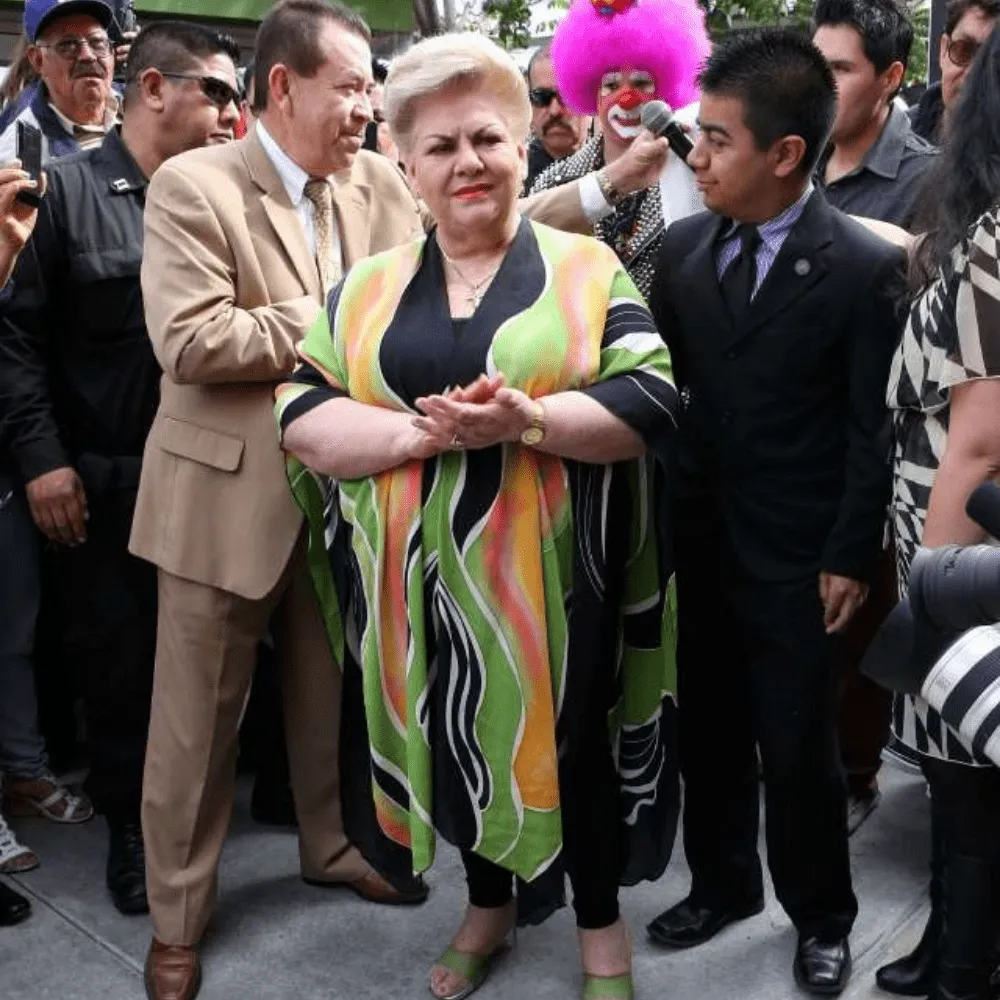
La cantante encontró en Miguel Gerardo, un hombre que era 28 años mayor que ella, la posibilidad de experimentar un romance digno de una película. Sin embargo, en cierta medida, los dos protagonizaron un melodrama sin amor.
Un amor ciego
The Bolero Guerrillera was living with Miguel Gerardo when her partner’s wife came knocking on her door, revealing that he was a married man. Despite this, they both agreed to continue their affair, which resulted in the birth of two children, Javier and Miguel Gerardo Viveros.

Un día, Paquita fue a ver a su madre junto a sus hijos. Mientras estuvo allí, se dio cuenta de que su hermana era amante de la música, lo cual le brindó una oportunidad para terminar su relación con su pareja.
Época de “Las Golondrinas”
Paquita’s first musical duet was with her only sister, Viola Dorantes. In order to achieve this dream, Paquita, known as the Queen of the People, left her mother in charge of her children and moved to Mexico City. “They called themselves ‘The Two Stars’, ‘The Two Eagles’, ‘The Coastal Girls’,” Javier Gerardo, Paquita’s second son, summarized in a talk show called Engarzadas Stories.

Al final, las hermanas fueron reconocidas como “Las Golondrinas”, un dúo habilidoso que ganaba admiración con sus interpretaciones de rancheras y canciones populares.
“La Fogata Norteña” enciende la llama de la pasión
Un cliente sugirió que se pusieran en contacto con Don Manuel Guadarrama, quien las llevó a trabajar en un restaurante llamado El Tío Plácido. Las melodiosas voces de “Las Golondrinas” fueron bien recibidas por el público y en medio de los aplausos, tuvieron la oportunidad de conocer a Alfonso Martínez.

The love with Alfonso took its time to develop. “They met, fell in love, and liked each other, and all that stuff. Very romantic, very cool,” Javier Gerardo declared in Historias Engarzadas.
De una fonda al restaurante de sus sueños
Alfonzo and Paquita were not only emotionally committed but also professionally committed. Together, they gathered funds and successfully opened a small eatery which eventually laid the foundation for their restaurant.

The couple purchased a plot of land where they built “Casa Paquita”. By the time the place was born, the singer was already a solo artist. “I came to Mexico with the goal of becoming an artist,” Paquita recounted on the show “The Minute that Changed My Destiny”. And in her restaurant, she achieved it.
La genialidad de Emilio Jiménez
On November 20, 1985, Paquita arrived at the set of the program “Hoy Mismo”. One year had passed since she recorded “El Barrio De Los Faroles” with Emilio Jiménez. It was him who gave the singer her musical stage name, “Paquita la del Barrio”.
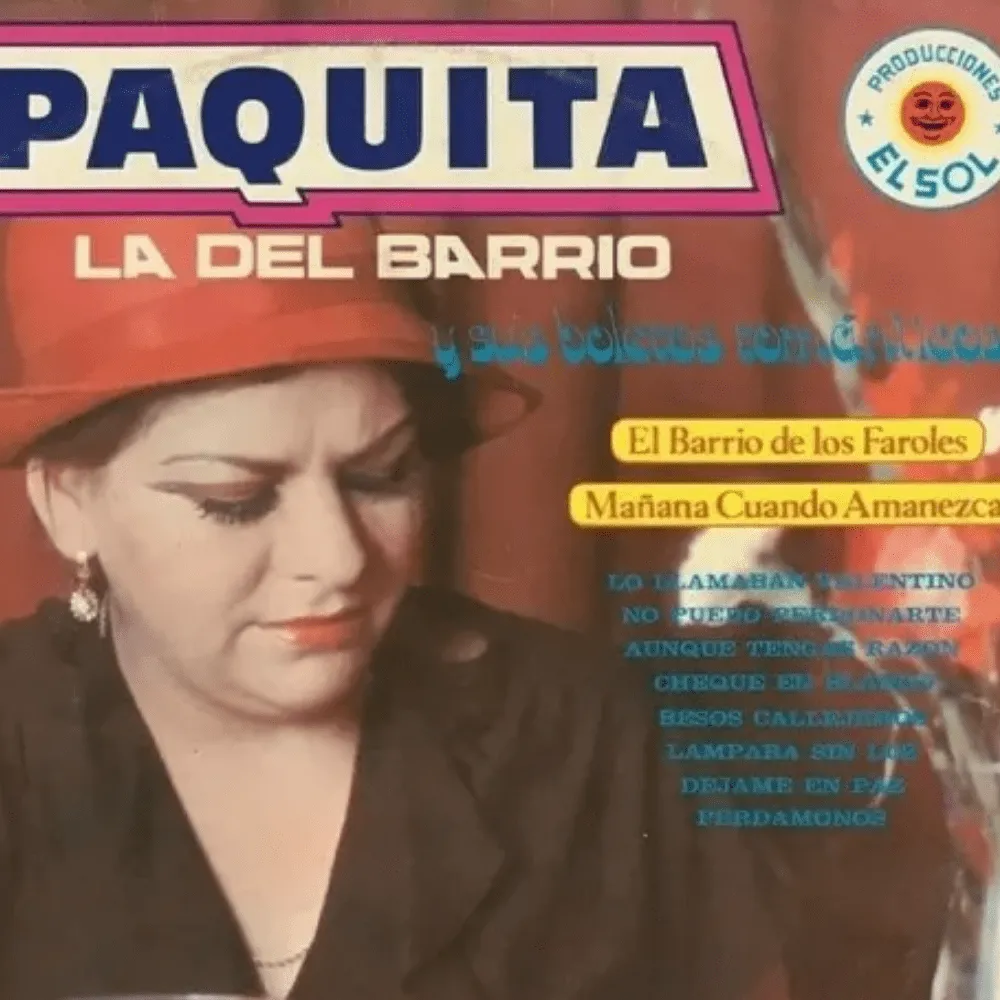
Paquita se encontró abrumada por la gran cantidad de personas interesadas en su programa. A partir de ese momento, una larga espera se formó para los clientes de “Casa Paquita”. Paquita abrazó su fama y se convirtió en la figura más importante del pueblo, siendo conocida como La Reina.
Una pérdida dolorosa
In 1977, Paquita and her husband were expecting the arrival of twins. They would be the couple’s first children. However, overshadowing this joyous news, the singer learned that her mother was seriously ill. Doña Aurora Barradas passed away from diabetes on December 11th of that year. Sorrow engulfed the Queen of the People, and there was no end in sight to her grief.

Sus gemelos nacieron el 26 de diciembre de 1977, pero lamentablemente fallecieron tres días después.
Una niña regresa la esperanza
In 1979, one of Paquita’s nieces became seriously ill. In the village, there were few health care resources available, so Paquita offered to take her to Mexico. “At first, they didn’t want to, but after insisting, they agreed to let me take her. I brought her to the doctor, and I managed to help her recover,” the singer told Gustavo Adolfo Infante.
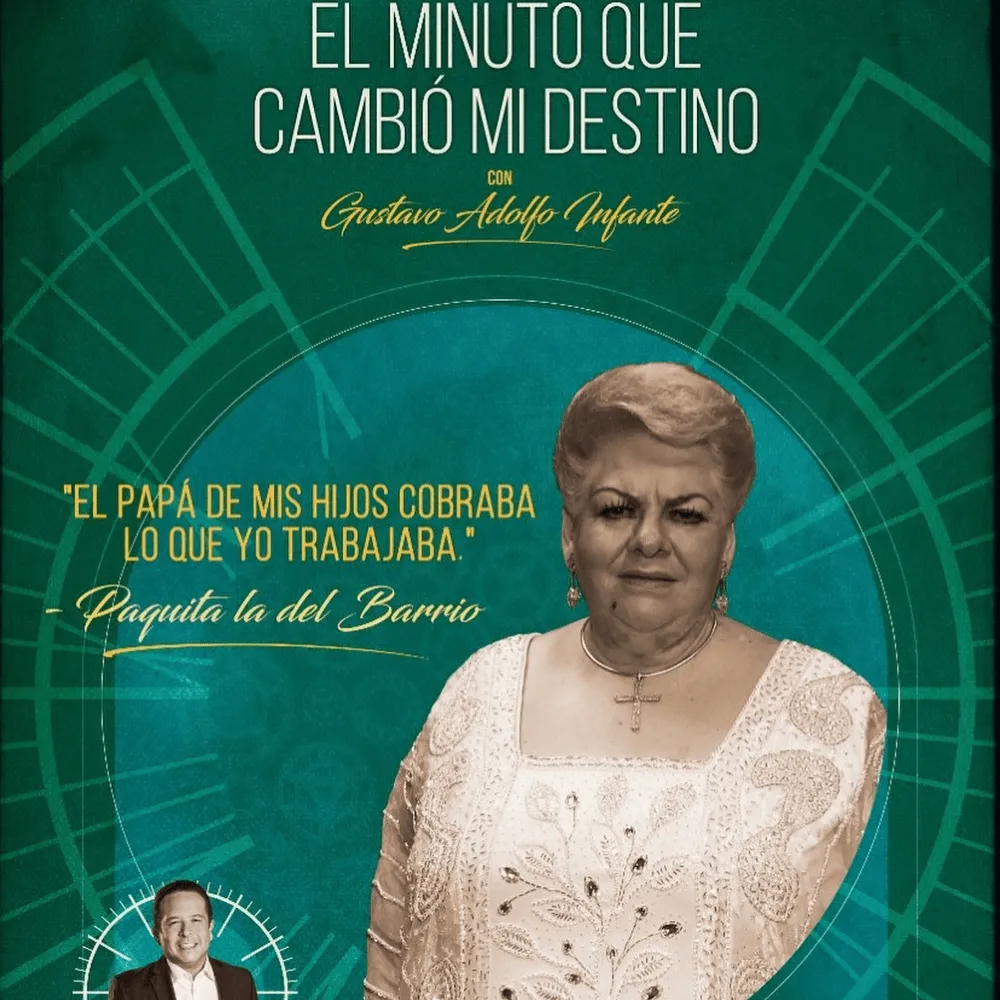
In the capital city, the girl regained her health and won her aunt’s heart. This is how Martha Elena Martínez Viveros became Paquita’s only daughter.
El conflicto que fijó su desamor

En el año 2001, sucedió que Paquita le quitó a su esposo los derechos sobre el restaurante, después de haber estado casados durante 30 años. Tres años después, el esposo falleció, pero no sin antes dejarle otra desagradable sorpresa.
Casa Paquita cierra sus puertas
“Casa Paquita” is a little corner in Colonia Guerrero where the voice of The Queen of the People resounds everywhere. Trusting Alfonso blindly, the singer dedicated herself to pampering her guests with music to their ears, while he took care of the accounts. Unfortunately, even in that, he deceived her.

En el año 2006, problemas financieros y malentendidos llevaron al cierre del restaurante. No obstante, en el año 2016, la cantante decidió volver a entonar sus poderosos himnos feministas en ese mismo lugar.
“Cuando hablo, me gusta que se me obedezca”
Aunque suene paradójico, normalmente solo conocemos al artista por la imagen atractiva que presenta para su público. Sin embargo, Paquita es una mujer desafiante, auténtica y valiente en primer lugar. Durante el programa El minuto que cambió mi destino, Gustavo Adolfo le preguntó cómo se definiría a sí misma y su respuesta fue tan fuerte y firme como sus canciones.

“I am calm, I speak rarely. When I do speak, I like to be obeyed immediately. Yes, I am a little demanding,” replied the star.
La misandria de sus letras
Hay numerosos cantantes que incluyen insultos en sus canciones, sin embargo, solo la voz grave de Paquita le da poder a cada descalificación que dirige hacia los hombres. Describiéndolos como despreciables, seres rastreros, demonios, malditos insectos, monstruos lamentables, serpientes venenosas, hienas del infierno y por supuesto, el conocido como “rata de dos patas”, son solo ejemplos del odio que Paquita siente hacia los hombres.
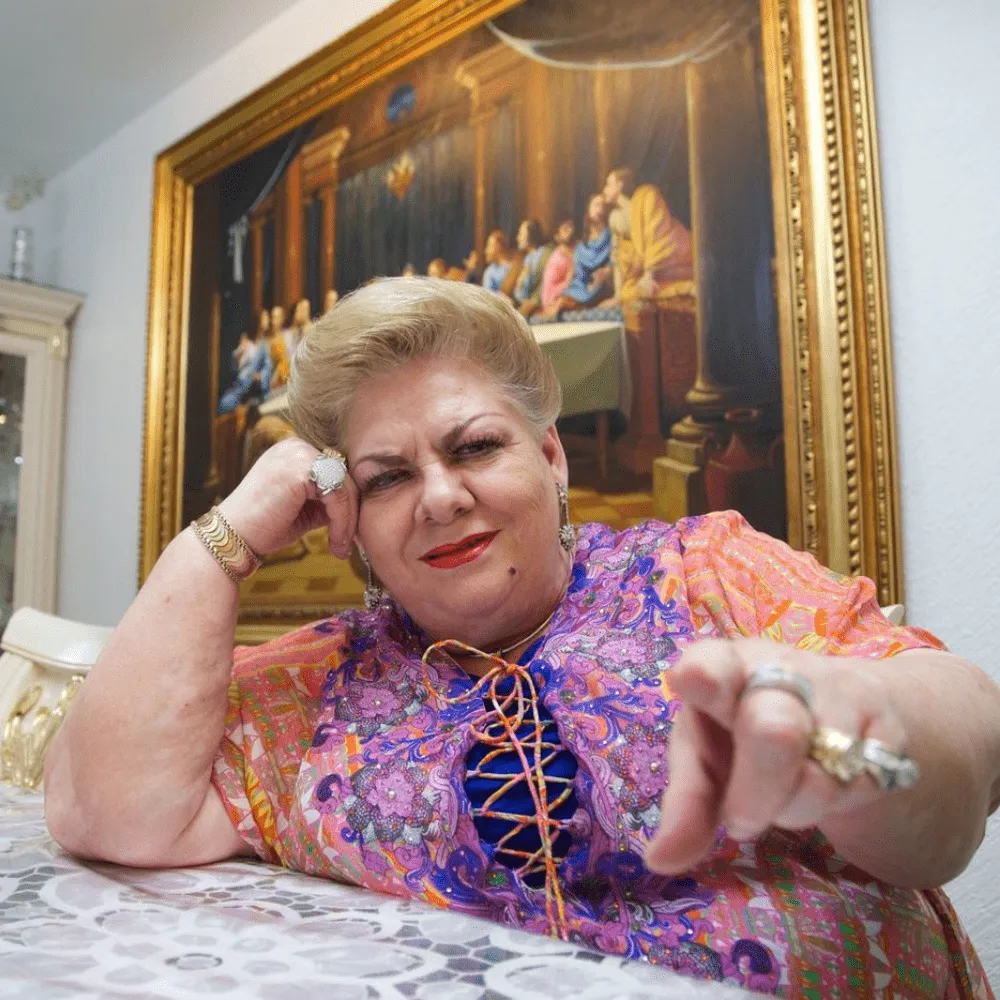
Hay muy pocos temas que no tienen alguno de estos gestos incluidos.
El problema con Viola
A certain discomfort arose from “Las Golondrinas”. The duo separated after they received a contract in 1975 that exclusively requested Viola. In 2011, Paquita accused her sister of causing the death of their mother and twins.
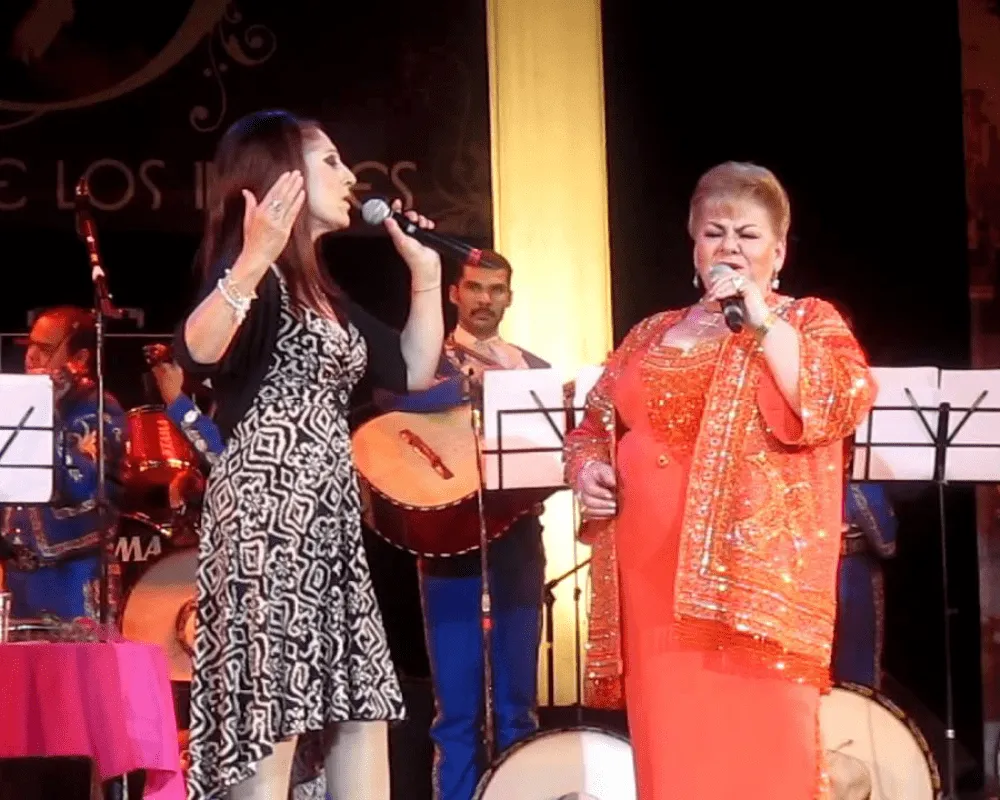
Viola answered that the real cause was Paquita’s issues with alcohol. The two sisters reconciled in 2015. “What happened happened, and that’s how things were,” Paquita stated on Suelta La Sopa.
El único hombre fiel en su vida
“Manuel Eduardo Toscano, a Veracruz native, commented on the 20minutos show, saying: ‘She always says: you really understand my life, when I sing about your experiences, it feels like I wrote them myself.'”

Toscano, the composer responsible for songs like “Rata de dos patas”, “Me saludas a la tuya”, “Piérdeme el respeto”, “Que me perdone tu perro”, “Taco placero”, “Hombres malvados”, “Pobre pistolita”, and “Viejo rabo verde”… clearly, he is a man who has understood the star’s emotions.
Eterna feminista
The Queen of the Mexican people is a regal and strong woman. For five decades, Paquita has been fighting against sexism from the stage. The lyrics in her discography are a sharp and direct wake-up call to men. Feminism is her banner, and songs like “Las mujeres mandan” certify it.

She is a versatile artist, but above all, a visionary who speaks up for women in a male-dominated genre: ranch music.
Polémicas declaraciones
“According to Paquita’s statement to People en Español in 2010, she acknowledged causing significant harm to the LGBTQ+ community. While not making excuses, she attributed these remarks partly to the lack of proper education she received growing up in a small town where such prejudices were common and normalized. She offered her apologies to the LGBTQ+ community for expressing her disagreement with same-sex couples adopting.”

Después, dio un concierto en el cual volvió a expresar su posición.
La educación ante todo
“Paquita, in an interview with El Comercio, emphasized the significance of a woman’s education, learning, and self-love.”
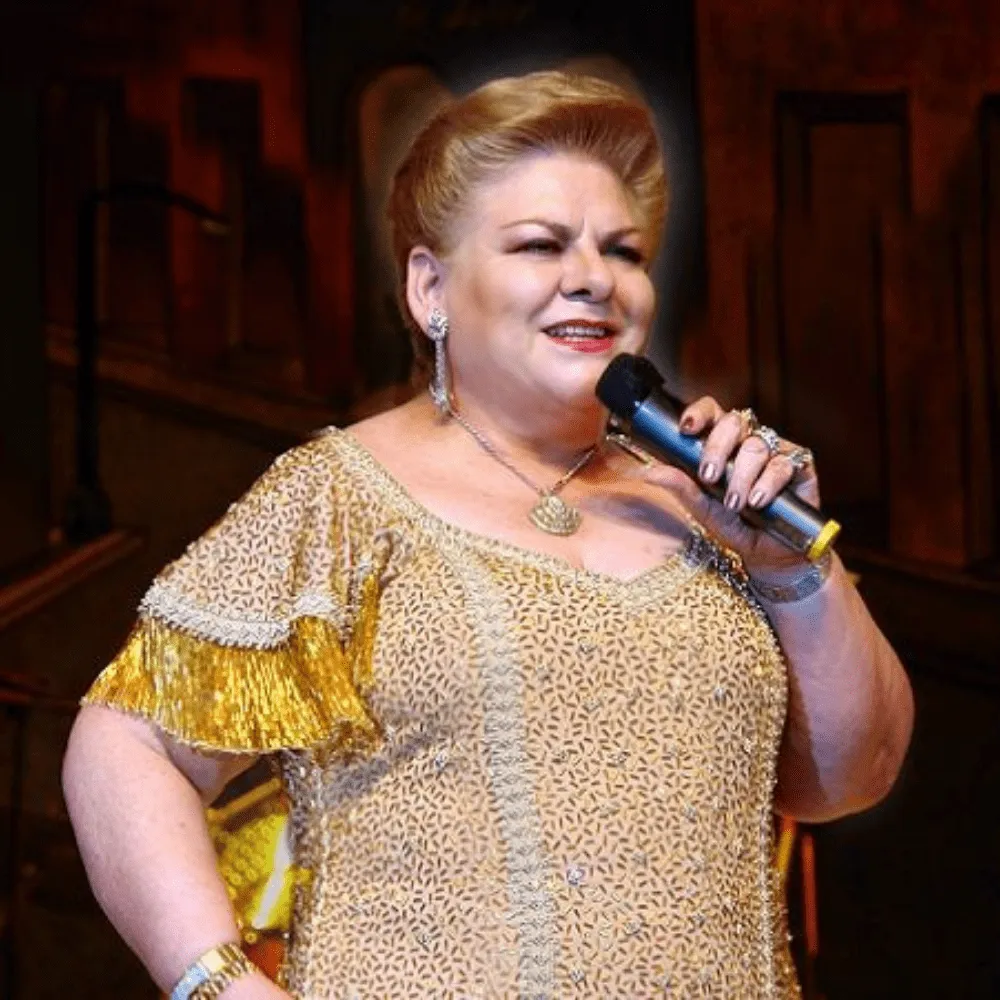
And it’s just that even though she only studied up until sixth grade, the singer understands that we must adapt to all times, and education is never excessive, on the contrary, it opens doors when least expected and prevents misfortunes like the ones she experienced. That is why Paquita supports education, especially for women.
Hasta Juan Gabriel se rindió a sus pies
Juan Gabriel, known as El Divo de Juárez, was a wary man when it came to sharing the stage. Paquita was one of the few who joined him at the Auditorio Nacional to celebrate his 45 years of artistic career.

El famoso ídolo cedió su lugar y se rindió ante la cantante veracruzana mientras ella interpretaba sus canciones clásicas. Ambos se admiraban mutuamente. “Él me tenía un gran cariño, y yo sentía lo mismo por él”, dijo la cantante al periódico Reforma.
Etapa como actriz
Se sabe ampliamente que Paquita es reconocida por su talento como cantante, sin embargo, también demuestra habilidades artísticas en el campo de la actuación. En 1992, comenzó su incursión en este ámbito con la telenovela “María Mercedes” y en el mismo año, Silvia Pinal la invitó a participar en “Modelo antiguo”.

Ten years later, she joined the melodrama “Velo de novia” playing the role of Antonia. In 2015, she took part in “Amor de Barrio” and later made her mark on Netflix, singing relentlessly with her accustomed character as the fictional Pablo Escobar in the series “Narcos”.
Una vida de serie
In 2017, Andrea Ortega-Lee took on the role of portraying Paquita in a biographical series produced by Sony Pictures and Teleset. Throughout 74 episodes, the series captures significant moments in the singer’s life, from the teasing she faced in school due to her weight, to her transformation into the renowned “La Guerrillera del Bolero.”
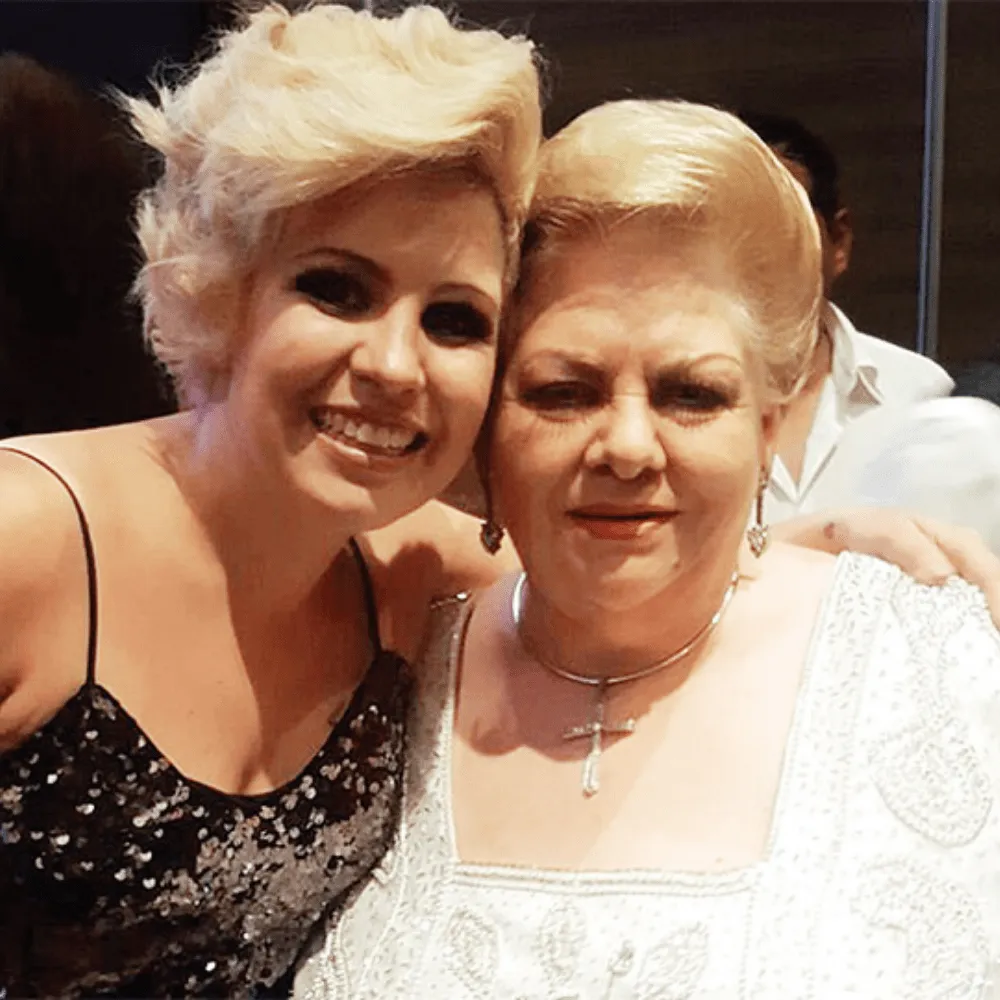
“Manchita” has repeatedly expressed how fortunate she felt to have the opportunity to play this role with Paquita’s blessing.
Las joyas de Paquita
The Queen of the People is passionate about jewelry. A closer look at her photographs reveals a consistent pairing of prominent rings with eye-catching matching earrings and necklaces. If you’re observant, you’ll notice that Paquita always carries a crucifix with her, whether as an earring or pendant. The cross is her faithful companion.

And the thing is, even though the singer talks about updating beliefs and customs, she is quite traditional and steadfast in her principles.
Su legado
The Bolero Guerrillera inspires, transforms, and engrains her statement in Mexican popular culture. Her uniqueness and style have remained relevant even after nearly five decades in the music industry.

Paquita remains a woman from a small town who brings back the history of Mexican cabarets in every performance. From Spain to the United States, not forgetting a stop in Colombia, Chile, and Ecuador, oppressed women find a symbol of strength in the face of “useless” individuals through her thought-provoking songs.
Inesperadas colaboraciones
Natalia Jiménez, Ana Bárbara, La Sonora Santanera, Marco Antonio Solís, Yuri, Los Tigres del Norte, and even Genitallica are just a few of the artists who have shared the stage with Paquita la del Barrio. However, the outcomes haven’t always been as pleasant.

En 2014, el evento con Maricela resultó insatisfactorio. Paquita compartió con SAPS Grupero: “Al final, ellas son las que quedan en una posición desfavorable. Yo simplemente hago mi trabajo y ya está”. No es la primera vez que ella expresa su descontento.
Prefiere cantar en solitario
According to Paquita in an interview with TVyNovelas, she said, “I am not the one who asks to sing with someone. Instead, I am usually asked as a favor to accept recording a song together, and I do it with pleasure. However, I prefer to sing alone.”

The Bolero Guerrillera focuses on ‘feeling’ her songs, that is the key to her closeness with the people. It’s not just the lyrics, it’s the character she infuses into her songs, which is why she prefers to experience it alone.
The Bolero Guerrillera’s main focus is to truly ‘feel’ her songs, and that is what brings her closer to the people. It is not only the lyrics that matter, but also the unique quality she imparts to her songs, which is why she chooses to live the experience by herself.
Se resiente su salud
In 2019, Paquita la del Barrio’s health deteriorated after she developed pneumonia and pulmonary thrombosis. This information was confirmed by Francisco Torres, the artist’s manager. The news caused a frenzy on social media. This was not the first time that the singer of “Rata de dos patas” had been admitted to the hospital. In 2015, an gastric ulcer required emergency medical attention.

The Queen of the People managed to recover on both occasions. Paquita, who is 74 years old, remains strong.
Un duelo de divas
If you thought that the success of “Rata de dos patas” was unbeatable, it’s because you didn’t witness the showdown between Paquita and Alicia Villareal on stage at the Metropólitan Theater with ¡Duelo!

The story behind this presentation draws inspiration from the album “No Hay Mujeres Feas” (There Are No Ugly Women). Initially, it was expected to be a one-time performance, but its success led them to a sold-out show at the Arena Monterrey. “It’s a battle of emotions, of feelings,” Villareal declared to 20minutosmx, and the spectators certainly confirmed it.
Un nuevo reto
This year, Paquita decided to speak up from different arenas. The singer, who is a true goddess under the spotlight, with her honest and experienced voice, chose to set aside music and instead advocate for women in higher positions.

The Queen of the People has over 40 studio albums to her name. Along with countless awards and recognitions. It’s impossible to predict the outcome of this new challenge, but one thing is for certain, Paquita is and will always be The Queen of the people.



